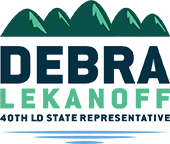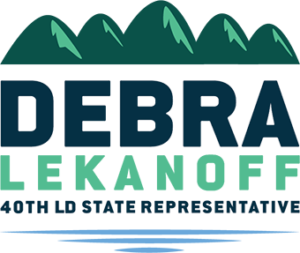Casting Your Ballot on Fantastic Friday!
Dear Friends,
It is with great pride and optimism that I address you today regarding the remarkable progress we’ve made in our state’s political landscape over the past two decades. The strides we’ve taken in elevating the voices of women and people of color in our government are truly commendable, and I am honored to be part of this transformative era.
This year, we’ve achieved a significant milestone: nearly half of our state lawmakers are women. With 68 women serving in our 147-member Legislature, Washington now ranks fourth in the nation for female representation in state government. This achievement is a testament to the unwavering dedication of countless individuals and organizations who have tirelessly advocated for a more inclusive government.
As I reflect on this progress, I’m reminded of the strength and resilience of my own grandmother and mother, whose birthdays we celebrate this week. Their experiences during challenging times have deeply influenced my understanding of perseverance and shaped our collective journey towards greater representation in governance.

Our state’s advancement mirrors similar progress across the nation. Recent events, such as President Biden’s historic apology to Indigenous peoples and Vice President Harris’s advocacy for women’s rights, underscore the importance of amplifying marginalized voices in shaping policies that affect us all.
The increasing presence of women and leaders of color in political office is bringing critical issues to the forefront of our state’s agenda. Matters such as reproductive rights, healthcare access, and social justice are receiving the attention they deserve, driving us towards more equitable policies and a brighter future for all Washingtonians.
While we celebrate our progress, we must acknowledge that our journey is ongoing. Barriers to equitable representation persist, and we must remain committed to supporting and uplifting those who have historically been underrepresented. I urge you, my fellow citizens, to stay engaged, encourage emerging leaders, and ensure that our legislative bodies continue to reflect the rich diversity of our state.
As we move forward, let us remember the power of our individual voices and choices. Every vote matters, and together, we can shape a legislature that truly embodies the values of equity and justice. I am deeply grateful for your support and participation in this ongoing journey towards a more representative and inclusive Washington State.
Keep reading for more on this Fantastic Friday.
Rep. Debra Lekanoff
Be Sure to Cast Your Ballot!
We have such an important election coming up, and there is no better way to make sure that your community reflects your beliefs than to cast your vote. Choosing who represents you in Washington, in Olympia, on School Boards, and everything in-between is so incredibly important.
If you need more information about registration or what is on your ballot, head over to voter.votewa.gov for all the information that you need.

There are so many tremendous candidates running for office this year, and it truly warms my heart to see passionate and dedicated people stand up to work for their communities.
There is no limit to what we can accomplish together, and I truly hope you will make your voice heard during this election.
President Biden Apologizes for Indian Boarding Schools
This week, President Biden made a historic visit to Arizona, where he formally apologized for the abuses inflicted upon Native boarding school students over a troubling span of 150 years – an apology long overdue. This moment is significant for countless Indigenous families who have suffered from the trauma of enforced separation, language loss, and cultural erasure.
For generations, Native children were forcibly removed from their families, sent to distant boarding schools, and expected to abandon their language, traditions, and familial connections. The legacy of these institutions has created profound and lasting impacts on Native communities, where the repercussions of segregation and abuse are still felt today.
President Biden’s apology is not just a symbolic gesture; it represents a recognition of a dark chapter in our history and a necessary step toward healing for those affected.

Photo courtesy of CBS News
The leadership of the Gila River Indian Community has been instrumental in advocating for this recognition and in promoting the cause of Indigenous rights more broadly. Their voices and actions have helped elevate the conversation around the need for healing and reparation, emphasizing the importance of cultural preservation and tribal sovereignty.
Moreover, the Biden administration is backing this apology with action. Ongoing initiatives aim to invest in tribal communities, providing billions in infrastructure funding, supporting Native-owned businesses, and promoting cultural preservation efforts. The administration’s commitment to addressing historic wrongs is evident in its policies designed to uplift Indigenous communities and ensure their voices are included in the federal decision-making process.
As we reflect on this apology, it’s crucial to acknowledge the resilience of Indigenous peoples and their ongoing fight for justice. Every vote matters in shaping the future, and this historic moment serves as a reminder of the power of recognition and reconciliation. Let us ensure that the voices of all communities are heard in our democracy.
Vice President Harris Focuses on Reproductive Rights
Vice President Kamala Harris is set to visit Texas in the final stretch of the presidential campaign, focusing on reproductive rights as a key issue. Her trip to Houston, just days before Election Day, will feature an event with women affected by Texas’ strict abortion laws implemented after the Supreme Court overturned Roe v. Wade.
Since that ruling, 14 states have enacted total abortion bans, with Harris consistently linking these restrictions to former President Trump’s Supreme Court appointments. The vice president’s campaign is leveraging personal stories to illustrate the impact of these laws, including those of Amanda Zurawski and Amber Thurman, who faced severe medical complications due to abortion restrictions.
Campaign advisor David Plouffe describes the Texas visit as a strategic move to capture attention in battleground states, using the stark realities in Texas to highlight potential risks for voters in states currently without bans. This approach aims to cut through the noise of traditional campaign tactics and resonate with voters on a personal level.
In Washington State, organizations like Planned Parenthood continue their efforts to educate communities and support women’s health initiatives. State leaders such as Representatives Debra Lekanoff and Vandana Slatter have been vocal advocates for reproductive rights, emphasizing women’s autonomy in healthcare decisions.

Photo courtesy of PBS
Harris’ Texas trip will also include Democratic Rep. Colin Allred, who is challenging Republican Sen. Ted Cruz. The vice president plans to participate in a podcast interview with Texas author Brené Brown, broadening her outreach on these critical issues.
As public opinion increasingly favors abortion rights, with about 60% of Americans supporting legal access, Harris’ focus on reproductive freedom underscores its significance in the upcoming election. Her firm stance against compromising on abortion rights in potential negotiations with a Republican Congress reflects the Democrats’ commitment to this issue.
This strategic campaign stop in Texas highlights the ongoing battle for reproductive rights and its potential to shape the electoral landscape as November approaches.



